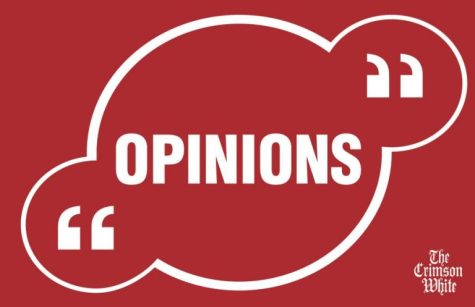Executive overreach is a national emergency
February 21, 2019
On Feb. 15, President Donald Trump signed a bill to fund the government and avoid another shutdown. The bill contained a provision allocating $1.375 billion to a border wall – this number falls well short of the $5.7 billion the Trump administration originally requested. Later the same day, the president announced his intentions to divert money by executive fiat from sundry sources to pay for the remainder of the wall.
This decision was rather startling. It is alarming that a president would presume himself to have the authority to sign a funding bill and then, hours later, contradict the same bill by re-apportioning resources in accordance with his own agenda. Even more alarming is his presumption is likely accurate; the president has the legal authority in this case to override the legislature, and his actions will almost certainly receive approval from the Supreme Court.
If the president’s national emergency declaration passes the test of judicial review, it will set a dangerous precedent with regard to executive authority. The first article of the Constitution clearly gives Congress the power to legislate, but this power is null if the executive branch can decide to circumvent the legislative process and push its own agenda.
Conservatives who favor the president’s national emergency declaration should put the shoe on the other foot. How would we feel if a Democrat in power tried to justify closing down private businesses they do not like by declaring a climate emergency? We would probably feel about how we felt when President Barack Obama went around Congress to impose his will on the issue of immigration. After Congress failed to pass the DREAM Act, which would have provided a pathway to citizenship for immigrants brought to the country illegally as children, Obama used his executive power to put the Deferred Action for Childhood Arrivals (DACA) program into action in 2012.
It is somewhat comforting that the record of history is not kind to executives who attempt to impose their will on the American people. Andrew Jackson is not particularly celebrated for imposing the Indian Removal Act of 1830 in direct contradiction to a Supreme Court ruling, nor is Harry Truman lauded for his attempt to seize private steel mills.
The difference in today’s case is that our obvious example of executive overreach is actually permitted by law. Given this fact, Congress ought to act quickly to limit the power of the president and restore the constitutional system of checks and balances that made our government great in the first place. It could start right now by reaffirming its power of the purse in order to hold the president and his executive agencies more fiscally accountable.
If they do not, we will continue to see a dangerous trend progress in American politics. In a time of real importance, when the legislature has abdicated much of its authority to the executive and judiciary, when the party in power has almost no legislative agenda, and when the president is attempting to expand the power of his office beyond its intended scope, conservatives in particular and Americans in general need to re-embrace the paradoxical truth that our government grows in efficacy when it shrinks in authority.










